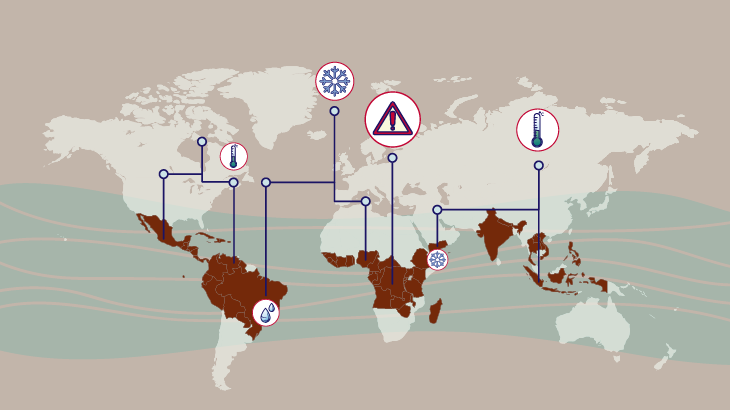
The most recent
Abstract
Quantifying the impact of supply shocks on global commodity trade networks is an increasing concern for researchers under the current threats of climate change and the lessons from the COVID-19 pandemic. This paper proposes a novel methodology to estimate these effects across the entire trade network: we create a weight matrix based on an index that captures the extent to which two coffee-producing countries compete within consumer markets. Using this matrix, we estimate the degree to which an adverse weather shock in a coffee-producing country influences the coffee production of its competitors. Our results show that this adverse shock has a negative direct effect on the country’s coffee exports and, importantly, a positive effect on the quantities produced by its competitors.

